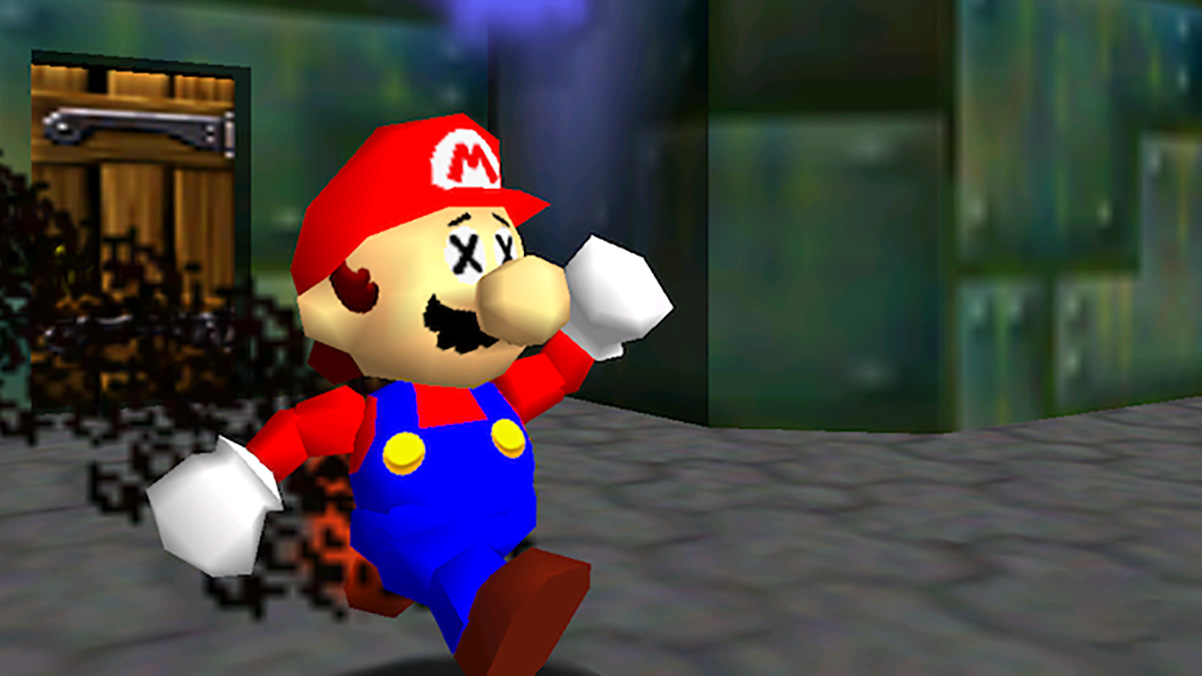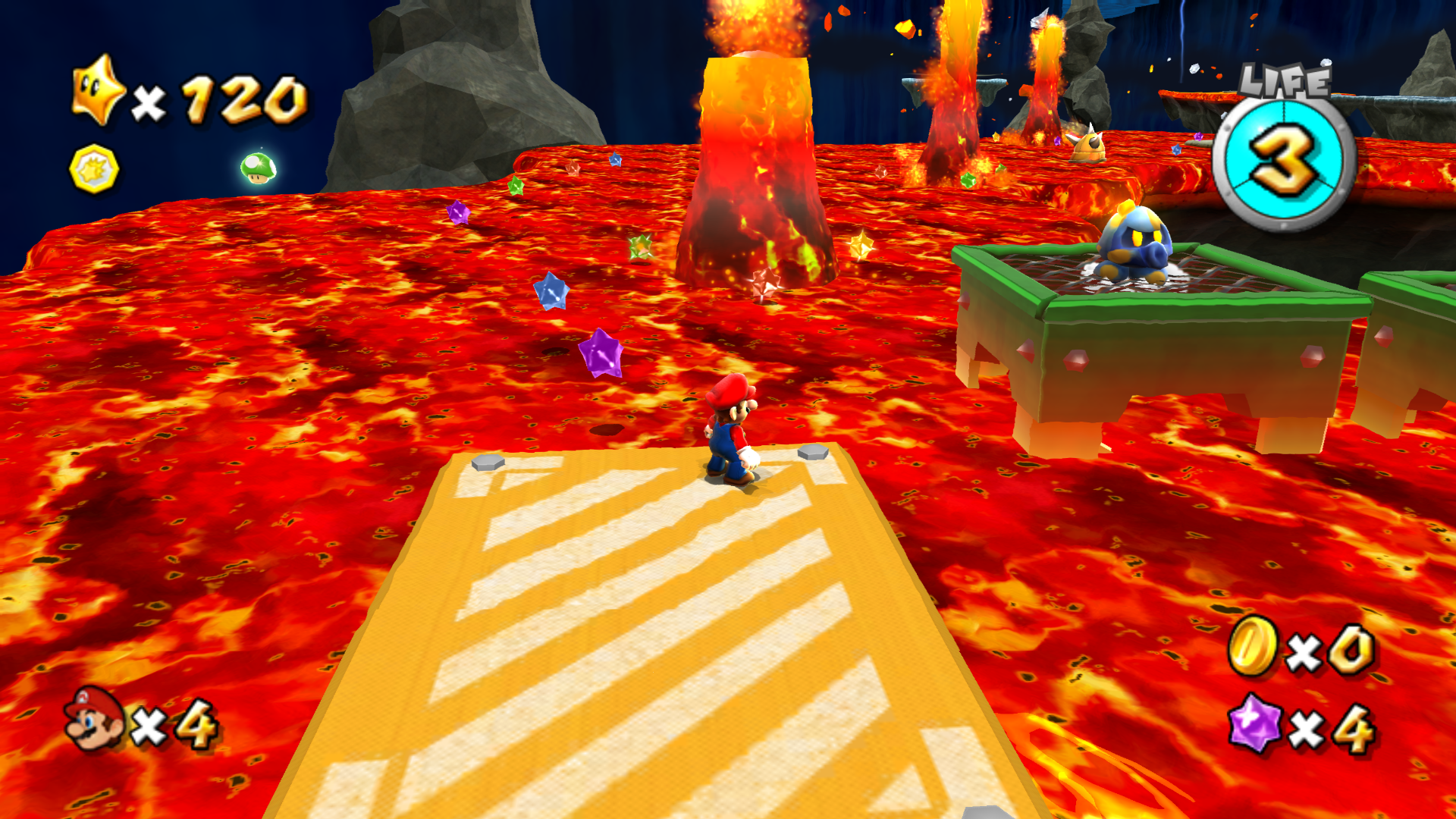Nintendo's claim that emulation 'stifles innovation' isn't just absurd—it's hypocritical
The fan emulation scene has not only lead to countless innovations over the years, it's directly benefited Nintendo.

In 2023, the three longest-standing pillars of game company Nintendo are Mario, Zelda, and insisting emulation is a blight on the videogame industry. These pillars have endured for decades: as far back as 2003 Nintendo had a legal page on its official site dedicated to condemning both emulation and ROM download sites, claiming "the introduction of emulators created to play illegally copied Nintendo software represents the greatest threat to date to the intellectual property rights of video game developers."
I can't think of a company that's benefited more from hobbyist emulation than Nintendo itself
I'll give Nintendo some credit for consistency, since last week—shortly after pressuring Valve to remove GameCube/Wii emulator Dolphin from Steam—Nintendo issued a statement just as breathless and fear-mongering as the one on its old corporate website. "Using illegal emulators or illegal copies of games harms development and ultimately stifles innovation," the company told Kotaku.
Nintendo can stomp its feet about emulation all it likes, but saying it stifles innovation? Whoever came up with that argument should be embarrassed, because I can't think of a company that's benefited more from the hobbyist emulation scene than Nintendo itself.
Here's a blatant bit of hypocrisy: I know that at least one contributor to the Android version of Dolphin was involved in Nintendo's official emulation of GameCube and Wii games on the Nvidia Shield TV. Digital Foundry took a look at the games in 2018, including Super Mario Galaxy, The Legend of Zelda: Twilight Princess, and several others, and determined they were being emulated rather than running natively on the Shield's Android platform.
These Android ports were only released in China and seemed like a test case for Nintendo doing GameCube and Wii emulation on the Switch, which is a cut-down version of the same hardware found in the Nvidia Shield TV. I don't know why that never came to pass, but if we ever see GameCube or Wii emulation on a future Switch 2, I'm dead certain that the development of Dolphin will have played an indirect role in making it possible.
Nintendo will never talk about that, of course—just as it wouldn't acknowledge that the hobbyist emulation boom of the '90s proved there was still interest in its older games for the NES that were no longer available for sale. Then along came the Virtual Console in 2006, proving that blooming nostalgia for older games could be monetized. In the same way iTunes took a bite out of MP3 sharing, the Virtual Console proved that when you're competing with free, convenience is vital, and the Virtual Console was extremely easy to use.
Nintendo can claim it's lost money to pirated games played on emulators over the years, and I'm sure it has—but it also made millions of dollars by launching a service that emulation proved viable.
Keep up to date with the most important stories and the best deals, as picked by the PC Gamer team.
Nintendo's just wrong
Stifles innovation. The blatant lie or ignorance of that line just keeps eating at me. Fan-made emulators are responsible for pioneering features that are now considered must-haves in official emulators. Save states, for example: Best as I can tell the ability to instantly save and load anywhere debuted in Nesticle in 1997, though another emulator might've gotten there first. Save states are so commonplace today we barely think twice about why they became a standard feature, but when Nintendo included save states in the emulator for its NES Classic and SNES Classic, it was leaning on something innovated (or at least popularized) by the fan scene.
Running games at 2x speed is another staple—an emulation perk now deemed essential in remasters of old JRPGs like Final Fantasy 8.
Without the popularity of romhacks like kaizo Mario, would Nintendo have ever developed Mario Maker? That hack helped inspire a whole genre of "rage games" instrumental in the popularity of speedrunning and Let's Plays.
There are so many wonderful fan translations that simply wouldn't exist without emulators making it possible to pick games apart and see how they work. (Wait a second—is Nintendo just still really salty about Mother 3?) Some other game developers have seen the light: just recently Square Enix veteran Takashi Tokita highlighted that fan translations helped spread interest in RPG Live a Live, and it finally got an official western release with the new HD-2D remake 29 years later.
Stifles innovation. What a ridiculous thing to say when a whole company, Analogue, exists thanks to the last decade of progress in software and hardware emulation. Analogue built a business around the idea of creating beautiful versions of old Nintendo systems like the Game Boy and NES that can run real game cartridges on circuitry that mimics the original consoles. Nintendo could've gone down this path, too, releasing stylish throwback Game Boys or Famicoms. I guess the company isn't interested in innovating when it comes to hardware.
The most charitable reading of Nintendo's argument is that the company meant only "illegal emulators" actually "harm development" and "stifle innovation." But Nintendo doesn't deserve that charitable reading when it's argued for decades that any emulator it didn't make itself is illegal, despite the clear legal precedent to the contrary when they're engineered properly (Connectix, Bleem).

Nintendo will always gloss over the technicalities, as it did just a week ago when it claimed Dolphin "illegally circumvents Nintendo’s protection measures" in its legal letter to Valve. As laid out by former Dolphin developer delroth, the legality of Dolphin including a decryption key in this context is unproven. Nintendo's lawyers can claim it's illegal all they want, but until they take the case to court and get a ruling, they're just demanding we take their word for it.
And here's even more evidence that you shouldn't take everything Nintendo says as gospel: the same letter to Valve claims "Wii and Nintendo GameCube game files, or ROMs, are encrypted using proprietary cryptographic keys." The GameCube did not use a cryptographic key! GameCube copy protection came from the way its discs were made; the Wii was Nintendo's first console to implement a cryptographic key for encryption. If even Nintendo's own lawyers can get the technical details wrong, it's pretty clear that nothing about this discussion is as simple as the company likes to claim.
If we're really worried about innovation, maybe we should be talking about our broken copyright laws, multibillion-dollar corporate mergers, and lifetime NDAs that prevent developers from talking about their work or problematic workplaces. Those all seem slightly more pressing to me than someone playing Mario on their PC.

Wes has been covering games and hardware for more than 10 years, first at tech sites like The Wirecutter and Tested before joining the PC Gamer team in 2014. Wes plays a little bit of everything, but he'll always jump at the chance to cover emulation and Japanese games.
When he's not obsessively optimizing and re-optimizing a tangle of conveyor belts in Satisfactory (it's really becoming a problem), he's probably playing a 20-year-old Final Fantasy or some opaque ASCII roguelike. With a focus on writing and editing features, he seeks out personal stories and in-depth histories from the corners of PC gaming and its niche communities. 50% pizza by volume (deep dish, to be specific).

